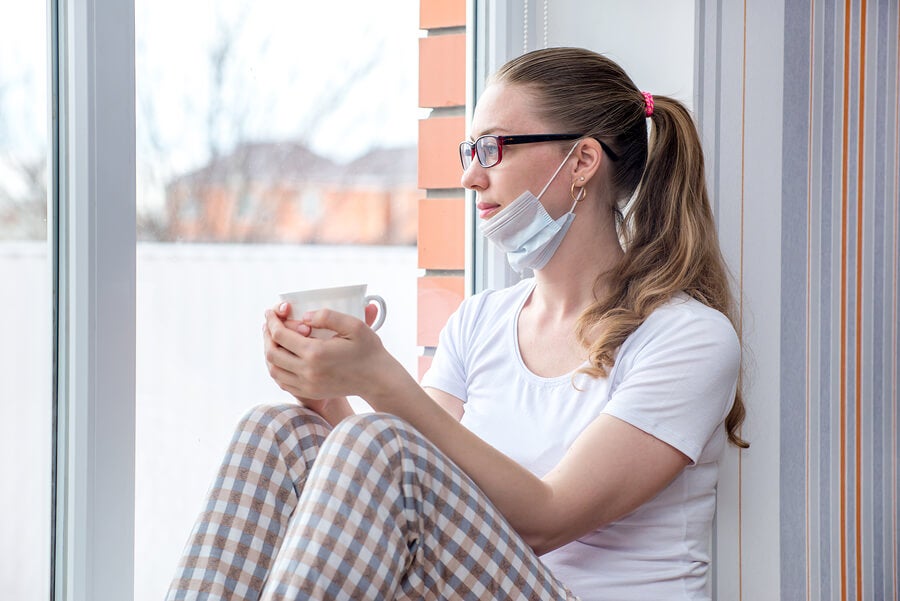Caring for mental health during quarantine

The period of confinement has brought higher levels of worry and anxiety for the population. Therefore, it is important to know some general recommendations to take care of mental health. Discover them!
Caring for mental health during quarantine can be a real challenge, especially for those who suffer from anxiety. However, there are certain recommendations to achieve this.
Since the emergence of the infectious disease known as coronavirus (COVID-19), the reality of each person has taken an unexpected turn, and concerns have also been increasing.
Now that the health authorities have taken extreme measures of care in many countries in order to avoid the spread of the virus, confinement has become more difficult, especially due to the anguish generated about what will happen later. .
Caring for mental health during quarantine
According to the World Health Organization , mental health is:
“A welfare state in which the individual realizes his own abilities, can face the normal pressures of life, can work productively and fruitfully and is capable of making a contribution to his community.”
In other words, mental health is the main pillar in order to experience well-being and function operationally, both individually and as a community. Now, the present situation has brought us additional concerns that have affected the mental health of many people.

Quarantined mental health can be compromised by many factors. Most have concerns associated with work and financial situation.
Concerns during quarantine
- Fear of contagion or others.
- Anxiety, often due to excess information.
- Health status of loved ones.
- Fear of being under observation due to certain symptoms.
- Tempo that cannot be dedicated to work due to contingency.
- Loss or decrease of income.
- Security regarding the job.
- Need to provide food for the family, as well as medicine.
- Serving other family members.
- Frustration and uncertainty when not knowing how long this situation could last.
- Loneliness due to distancing from other loved ones.
- Rage, suspecting that it could have been infected.
- Boredom.
- Loss of meaning by not having the routine to which he was accustomed.
- Irritability.
- Depression.
- Changes in appetite
- Changes in sleep pattern .
Beyond all these issues that could cause concern, you should also see the other side of the same coin. Understand why we are in quarantine, find the meaning of the situation. This will help us to face the situation and take care of mental health.
Guidelines for caring for mental health during quarantine
First, we must all be aware that if we were not in confinement the risks would be greater, both for ourselves and for others. So this situation involves having empathy. In addition, we can do the following:
- Tell us about what is happening, but only from reliable sources such as the bulletins of the World Health Organization (WHO).
- Avoid seeing or listening to yellowing news that abounds on the networks.
- Remember that children’s mental health is also important and they are sensitive to what we put on television.
- Consult a health center about what medicines we might need in an unexpected case, and have them at home.
- Maintain social contact through the networks. This will help us decrease anxiety and loneliness .
- Make video calls through Skype , or other applications, that allow us to see the faces of our loved ones.
- Reading good books and watching a couple of movies that are nice to us.
- Apply relaxation and breathing techniques.
- Practice meditation or mindfulness.

The measure of confinement is not easy to bear. Therefore, we must implement some strategies to take care of mental health.
Quarantined mental health: what should we remember?
Remember that taking care of mental health during quarantine is in our hands. Although anguish seizes us at times, we must avoid falling into despair. If necessary, it is best to contact an online psychologist for support.
Being quarantined or confined does not mean being isolated. We can use social media to keep in touch with all the people we love. On the other hand, if we have children, we can spend a couple of hours on fun activities like drawing, cooking together or playing.






